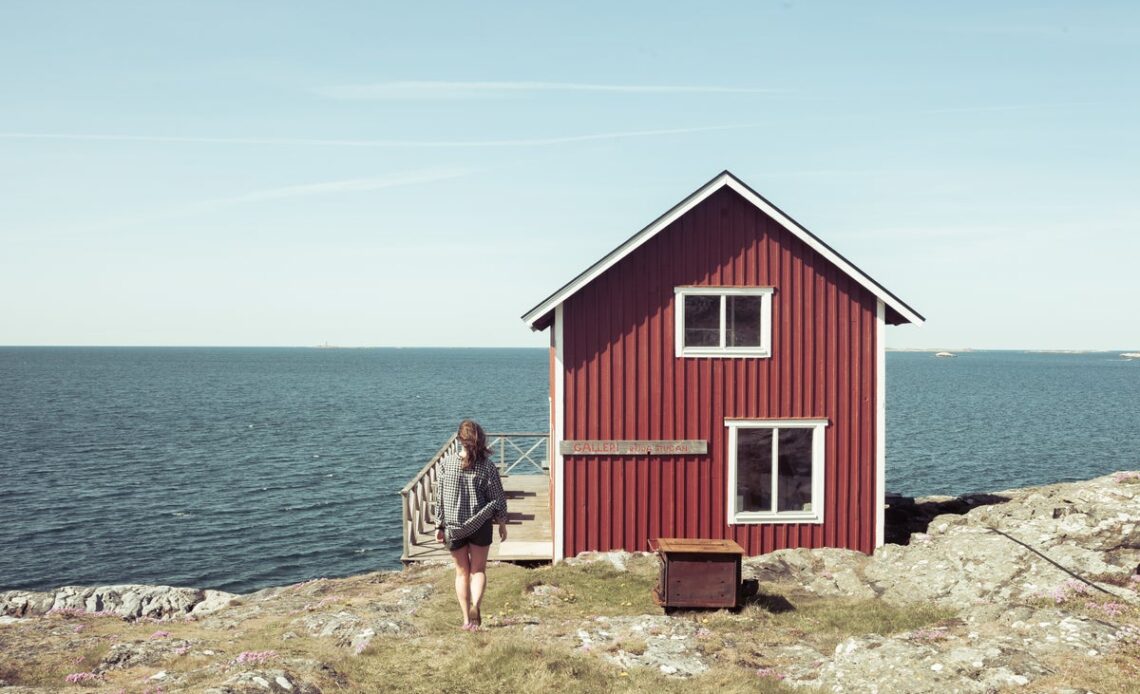The wind spits water in our faces as we paddle over rolling waves, Klädesholmen retreating onto the horizon. Patrik and I land our kayaks on an uninhabited clutch of rocks where gulls guard their eggs jealously, until we find a comfy perch to sit on for fika, the Swedish ritual of a coffee and cake break. This must be one of the wildest, least traditional fika stops you could make – homemade cinnamon buns and strong black coffee on a deserted islet, with an uninterrupted view of the ocean.
The feelgood factor is immense. And this is a trip to feel good about – not just visiting beautiful Sweden (always a favourite for outdoorsy pursuits and comfort foods) but West Sweden in particular, a rising star on Europe’s sustainable travel scene. The region, which extends to the lovely city of Gothenburg as well as lovely wild swathes of coast and countryside such as Bohuslän and Orust, wants to make eco-friendly travel simple with a new initiative, Stepping up Sustainability. Launched in November 2021, it effectively curates around 450 local businesses and accommodation options all committed to reducing their environmental impact, leaving sustainability-conscious travellers to book, experience and feel great about their trip.
In 2021, Gothenburg was named the world’s most sustainable city for the fourth time in a row, and its green lifestyle feels baked in when I arrive at its Central Station on a sunny spring day. Locals whizz about on bikes, hop on electric trams or rent sustainably designed electric boats to buzz around the city’s harbour.
Paddling around Klädesholmen island with Patrik Forsling
(Jacob Little)
The city centre is designed to be pedestrian-friendly – I wander around canals, bridges, parks, a huge botanical garden and a public sauna, and spot few cars along the way. Ninety-five per cent of the city’s hotels are also eco-certified, meeting the region’s environmental and sustainability standards. All meat served within the city – at restaurants like Noot Nordic Kitchen, which champions wild and foraged ingredients – must be organic. Gothenburg is also a hub for thrifted and vintage clothes, surely the most fun way to shop sustainably. If Sweden’s most famous eco-crusader, Greta Thunberg, did city breaks, they’d definitely happen here.
But the region’s sustainability efforts haven’t stopped at Gothenburg’s city limits. Getting out to the wild coastline, to explore the thousands of islands that pepper it, is simple –…
Click Here to Read the Full Original Article at The Independent Travel…
